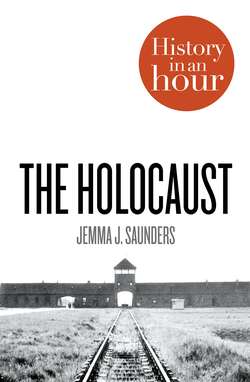Читать книгу The Holocaust: History in an Hour - Jemma Saunders J. - Страница 12
The Approach of War
ОглавлениеThousands of Jews had left Germany before Kristallnacht due to increasing intolerance, but the unprecedented violence of 9–10 November prompted another wave of immigration. Some left for neighbouring countries such as the Netherlands, Belgium or France, while those with the good fortune to be permitted entry to America journeyed across the Atlantic. The Nazis had no objections to Jews leaving; indeed, in 1938 Adolf Eichmann established an Office for Jewish Emigration in Vienna which ultimately forced 145,000 Austrian Jews to leave the Reich.
Outraged by Kristallnacht, the British Jewish Refugee Committee facilitated the Kindertransport programme, whereby thousands of Jewish children from Germany, Austria, Czechoslovakia and Poland were evacuated on sealed trains to Britain. These children were among 320,000 Jews who fled Nazi-controlled territories to build new lives elsewhere between January 1933 and September 1939.
For those Jews who did not or could not leave, numerous decrees that had been passed since the Nazis came to power meant they were continuously segregated, restricted and demeaned. All Jewish passports were stamped with a conspicuous red ‘J’, and the middle names ‘Israel’ for men and ‘Sara’ for women had to be adopted as a further mark of identification. Landlords had the legal right to evict Jewish tenants, young Jews could not attend state schools, and places of entertainment such as the theatre and cinema were forbidden. Over 400 decrees that discriminated against Jews in the Third Reich were ultimately passed by the Nazis.
As anti-Semitic persecution in Germany continued, the probability of continued peace in Europe was fading rapidly because of Hitler’s determination to further extend his empire. Already the Führer had pushed his luck, with the Rhineland remilitarization, the Anschluss, and the invasion of Czechoslovakia in March 1939; but when Nazi troops invaded Poland on 1 September 1939, it was finally a step too far. Two days later, Britain and France declared war on Germany.
With the outbreak of war, the borders closed. Jews could no longer freely leave Nazi-governed countries and the Kindertransport programme came to an end. Around 10,000 Jewish children had arrived safely in Britain, but most of these evacuees would never see their parents or wider families again. Hitler’s territorial ambitions had ignited a conflict that would last until 1945 and that would result in the genocide of millions.
